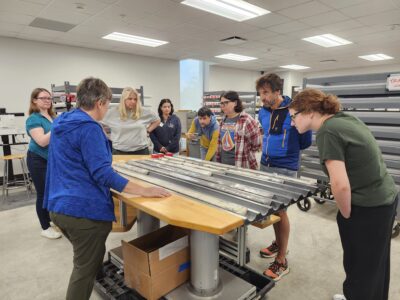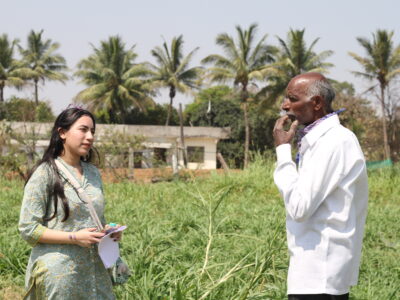
This semester, visiting professor Laurence Tubiana, head of the Institute for Sustainable Development and International Relations (IDDRI) in France, will be bringing her professional experience to bear as the instructor for two courses in the Earth Institute’s education programs, Political Economy of Energy and Climate Policy at the School of Continuing Education (SCE) and the International Political Economy of Biodiversity at the School of International and Public Affairs (SIPA).
Tubiana’s Political Economy of Energy and Climate Policy class, which fulfills the M.S. in Sustainability Management’s Public Policy curriculum area requirement, will focus on the challenges associated with the transition towards low carbon economies. Students will discuss the different policy instruments proposed, along with an analysis of key stakeholder strategies with specific attention given to the specificity of different contexts (developed, emerging, and developing countries) and economic sectors in evaluating the efficiency and effectiveness of alternative policy design. By the end of this course, students will be able to analyze and judge an energy or climate change policy or project by both practicing the tools needed to manage these types of projects (metrics, energy modelling) and examining cases from developing and developed economies.
This course represents the first Saturday course for the Sustainability Management program, providing another alternative to traditional course offerings for busy students, particularly those who work full-time. It will be taught over four full-day sessions throughout the semester: February 16th, March 9th, April 20th, and April 27th. With a focus on discussion and debate, students will spend these intensive course sessions interacting closely with Professor Tubiana.
At SIPA, the International Political Economy of Biodiversity course will present the challenges attached to global biodiversity conservation in four sections. The first section will provide the students with as scientific and historical perspective of the biodiversity crisis while the second section will focus on the international dimensions of the challenge. The course will then introduce the key governance instruments used for biodiversity conservation enforcement and conclude by investigating biodiversity economic valuation and sciences-policy interfaces as resources for biodiversity governance and decision-making.
Laurence Tubiana is also professor and director of the Sustainable Development Center at Sciences Po Paris. From 1997-2002, Dr. Tubiana served as senior environmental advisor to former Prime Minister Lionel Jospin and was responsible for the Mission for Sustainable Development where she led French delegations through several negotiations of environmental agreements. She was a member of the Council of Economic Analysis and served as director of research and director of the International Economy Laboratory at the National Institute of Agronomical Research. Dr. Tubiana has represented French NGOs on the international level and served as consultant for various international organizations, including the European Commission, The World Bank, and the United Nations Conference on Commerce. She was also a member of the scientific council of the Institute for Research and Development. Dr. Tubiana holds a diploma from the Institute of Political Studies in Paris and a Ph.D. in economics from the University of Paris I. Dr. Tubiana was associate professor at the Ecole Nationale Supérieure Agronomique de Montpellier and Inspector-General for Agriculture. She is now the Director of the Chaire Développement Durable de Sciences Po, a member of the China Council for International Cooperation on Environment and Development (CCICED) and on the boards of International Food Policy Institute (IFPRI) and CIRAD.



